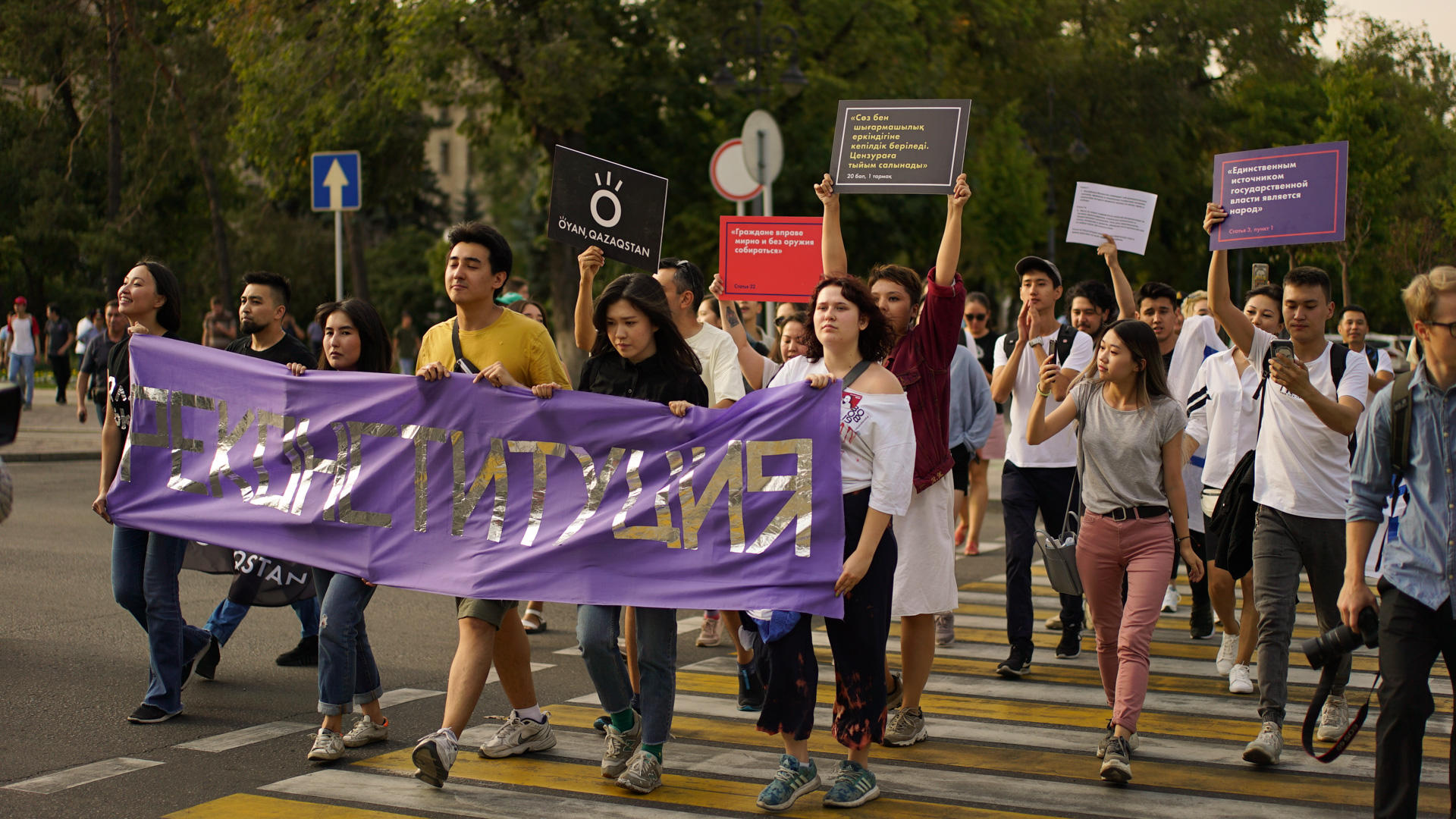On August 30, Kazakhstan’s Constitution Day, Oyan Qazaqstan civic movement held a peaceful march in Almaty.
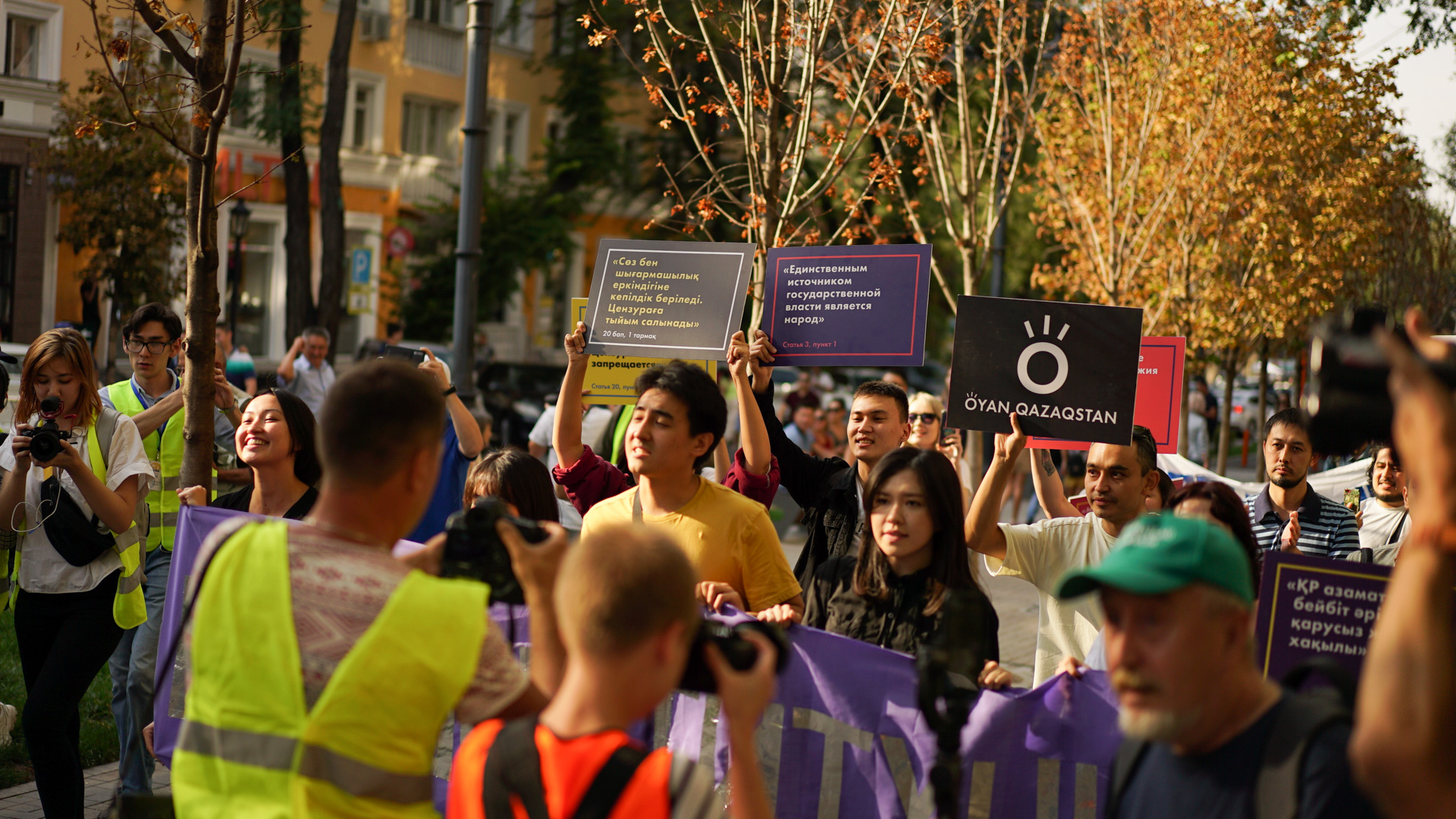
Most of the participants were young people, as well as independent artists and journalists. Some of the activists who had previously been detained for their artistic protest performances and campaigns in Almaty, were also seen at the march: cinematographer Aigul Nurbolatova, artist Roman Zakharov, journalist Aidana Aidarkhan.
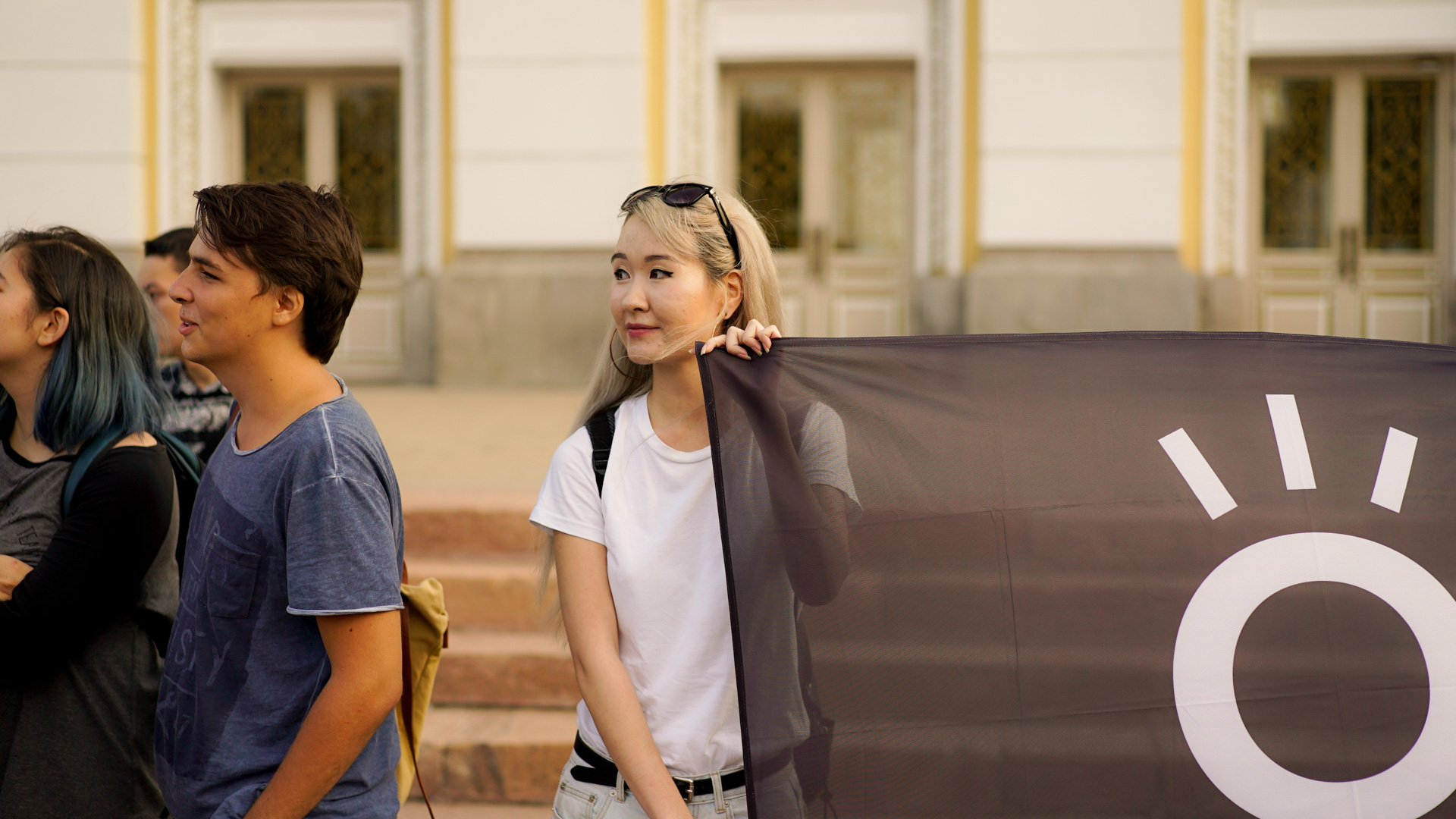
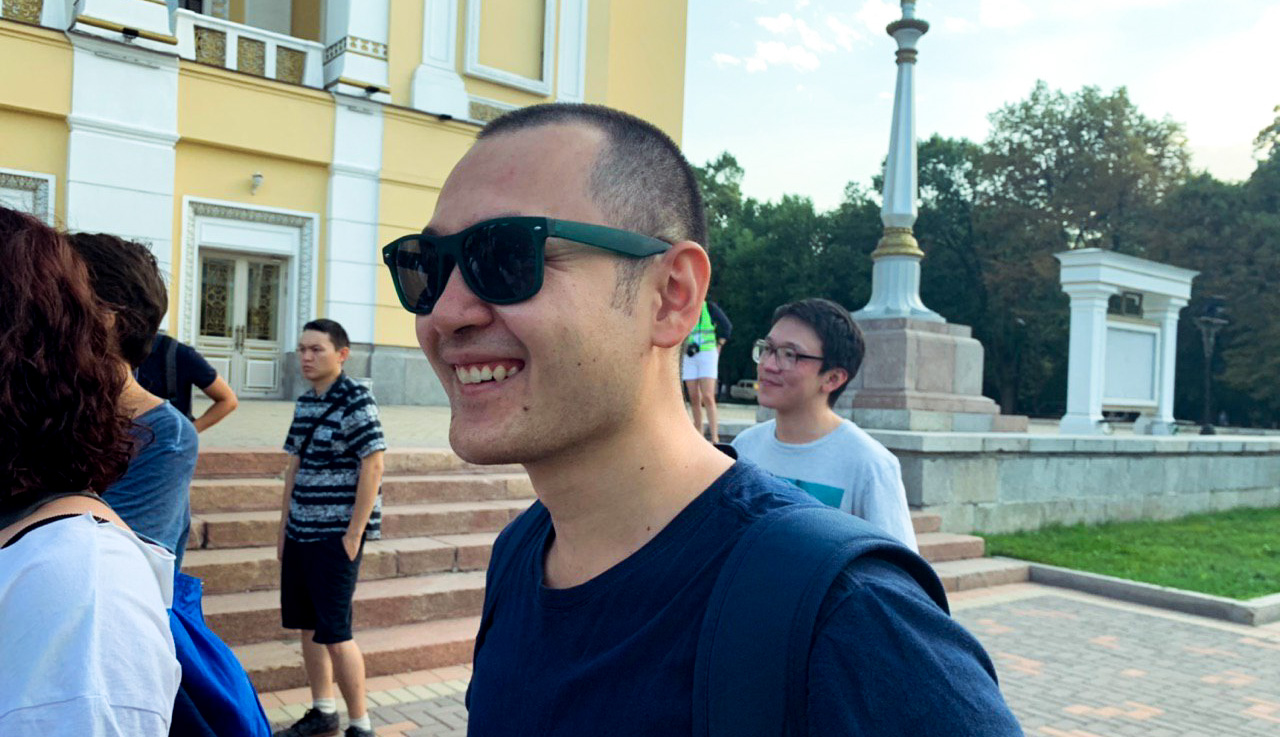
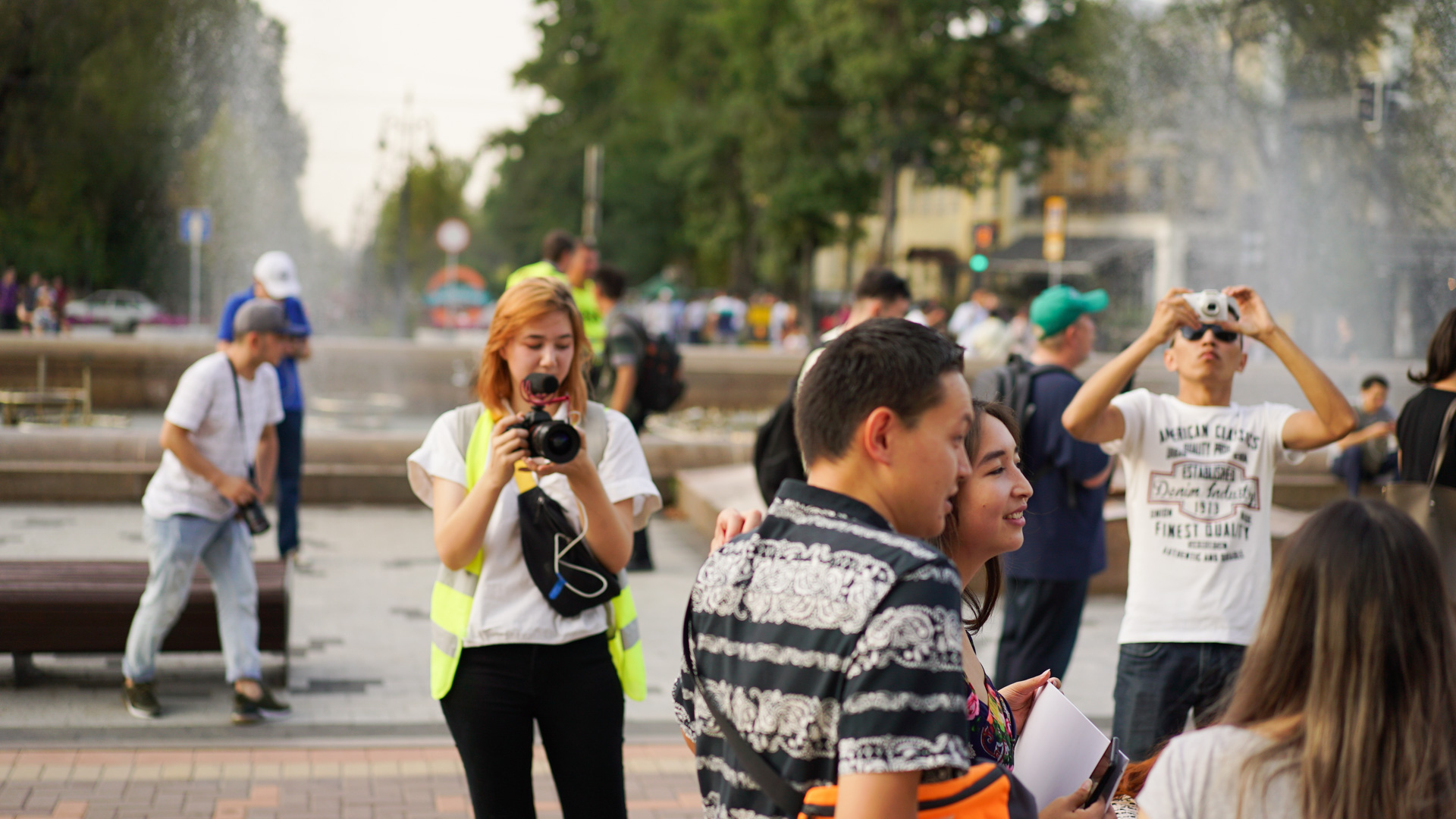
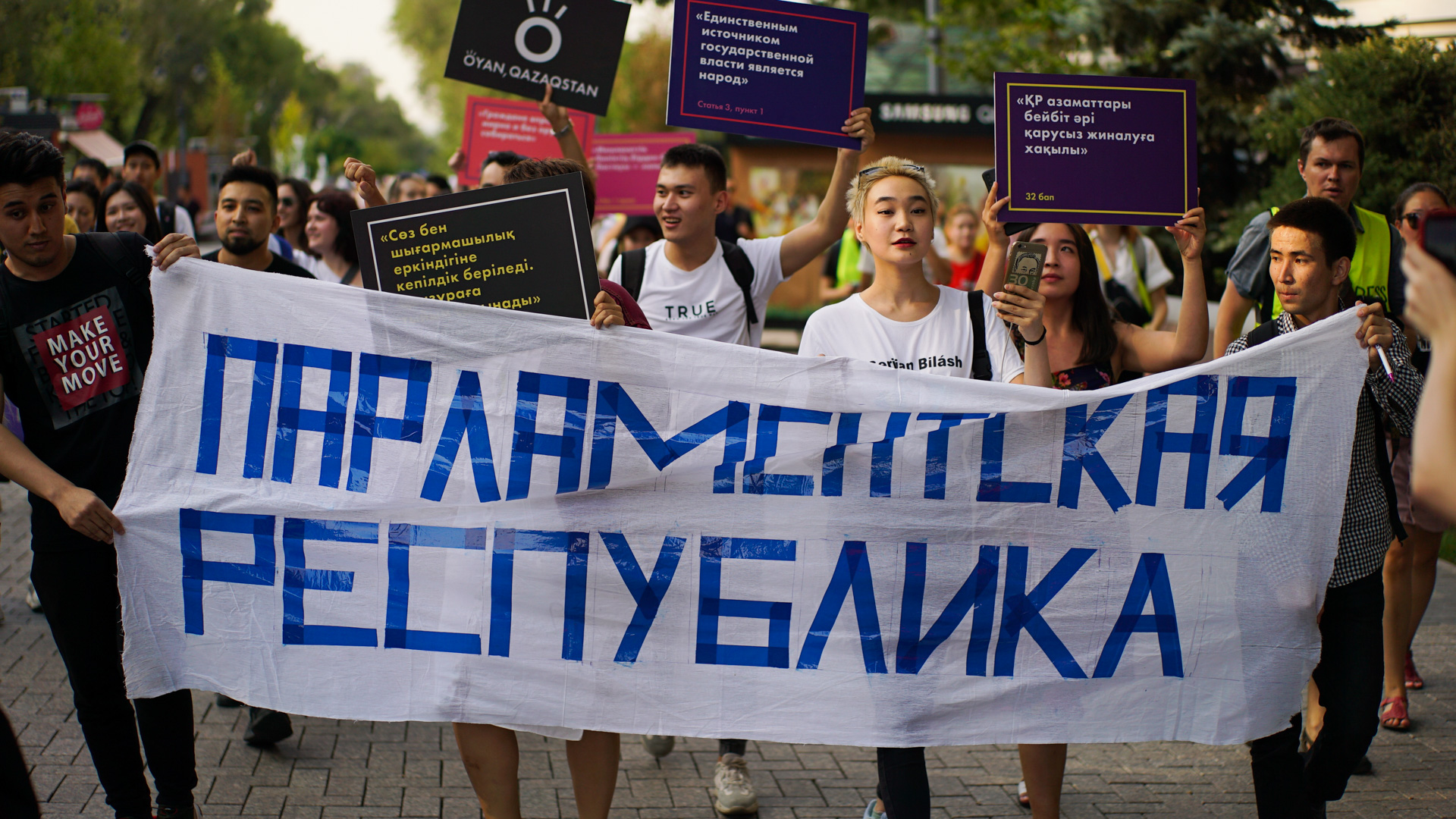
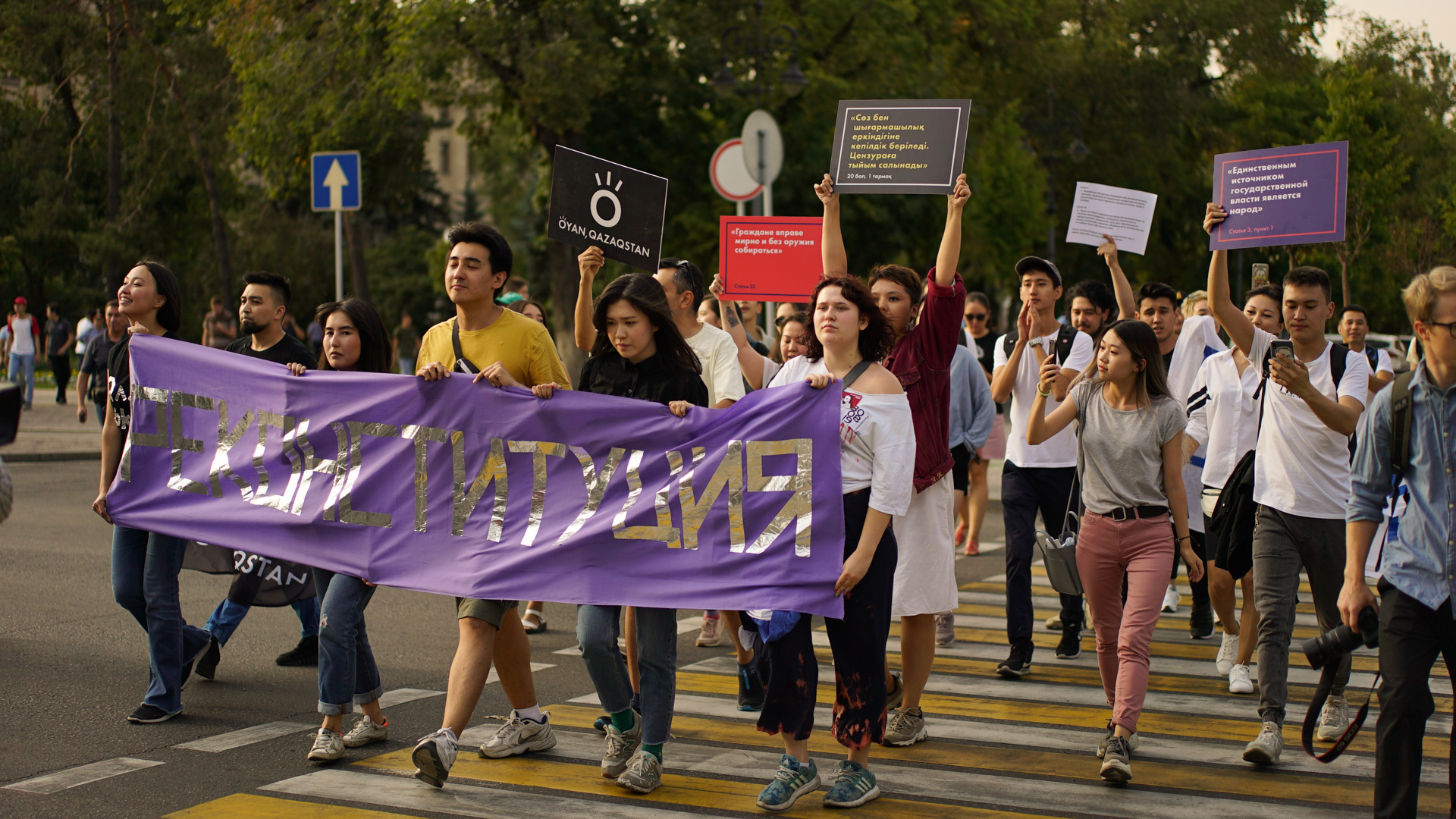
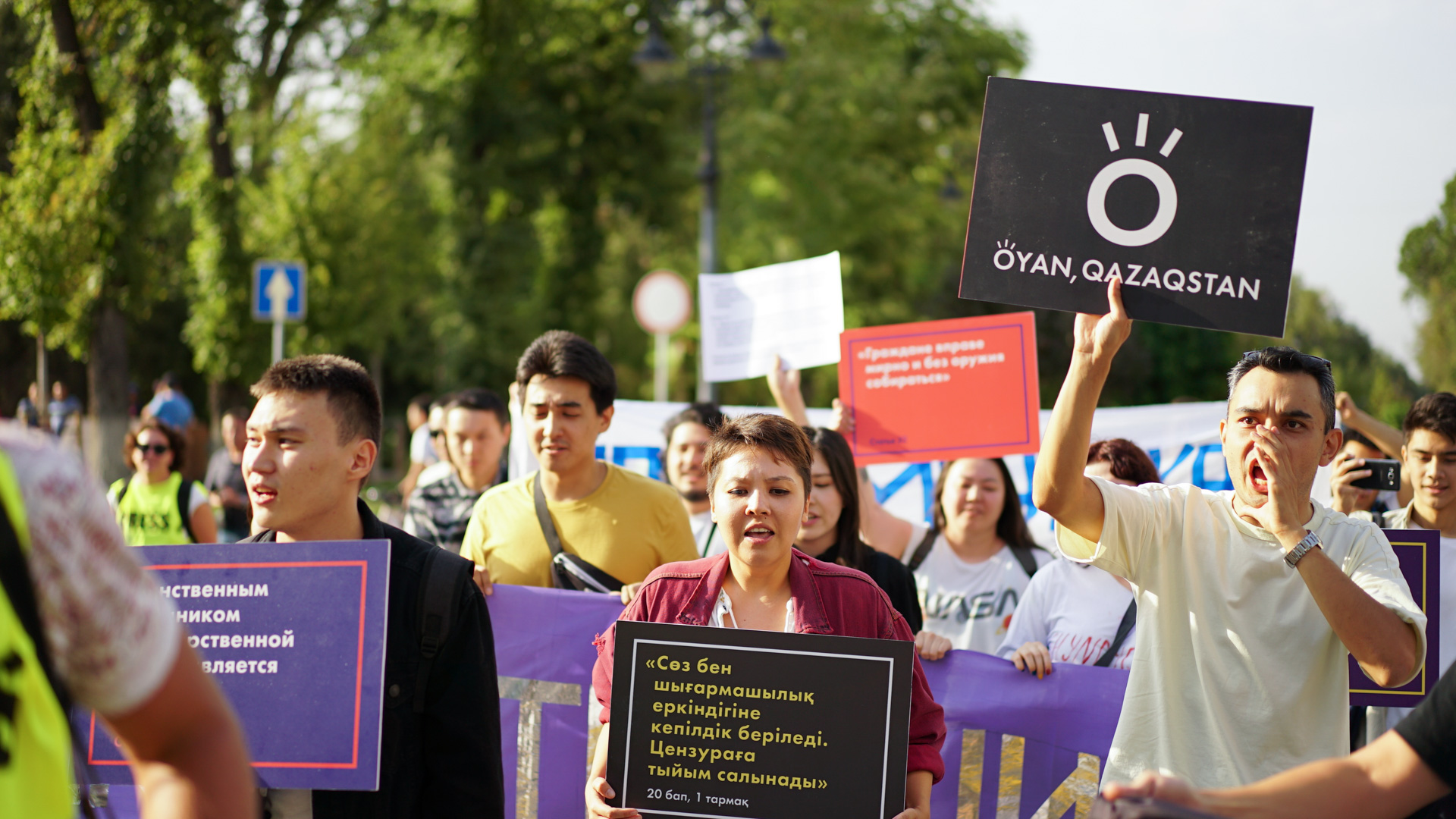
The march was also joined by the activists who had held a protest against sexual abuse earlier this month, and activist Alnur Ilyashev.
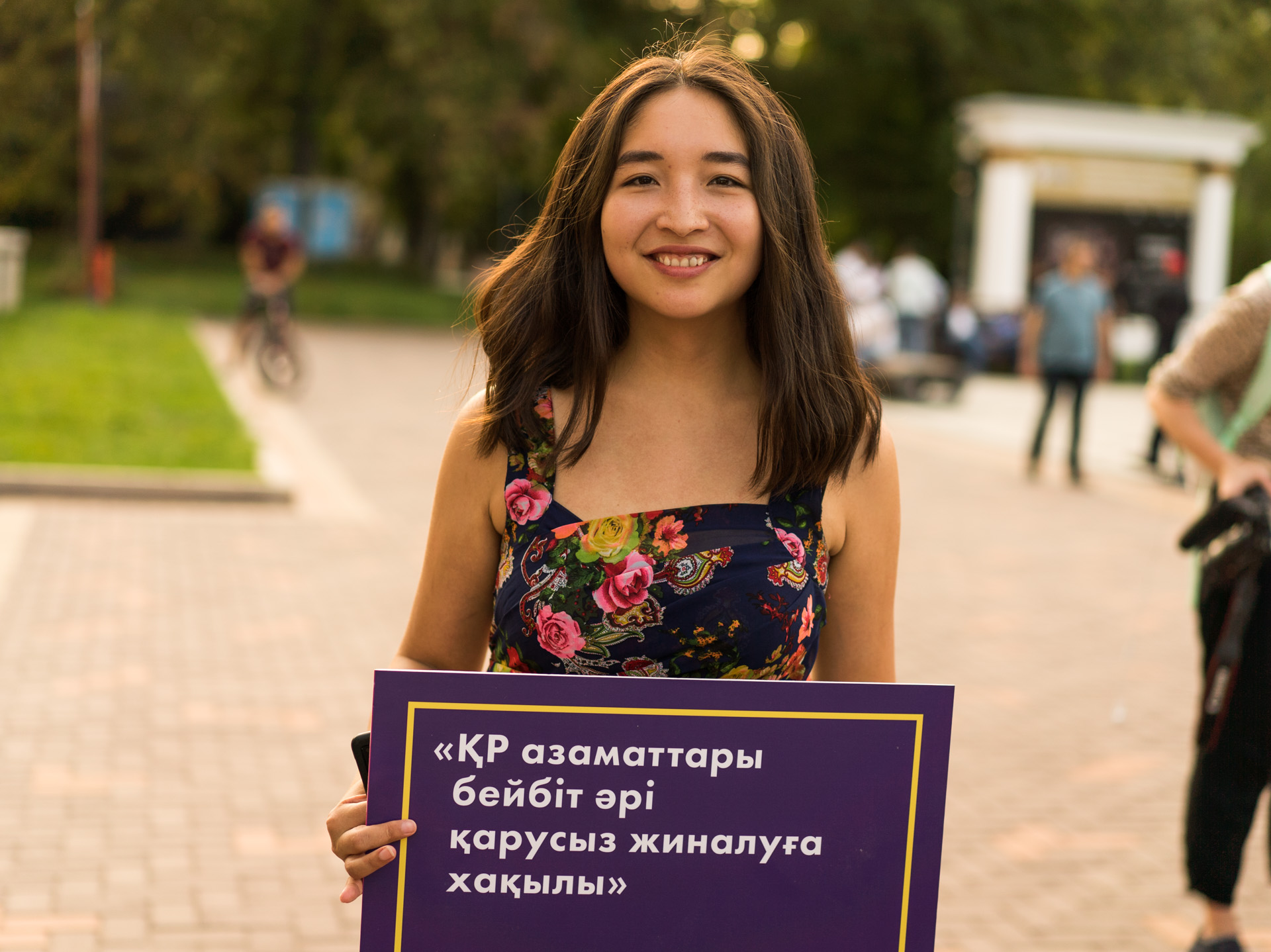
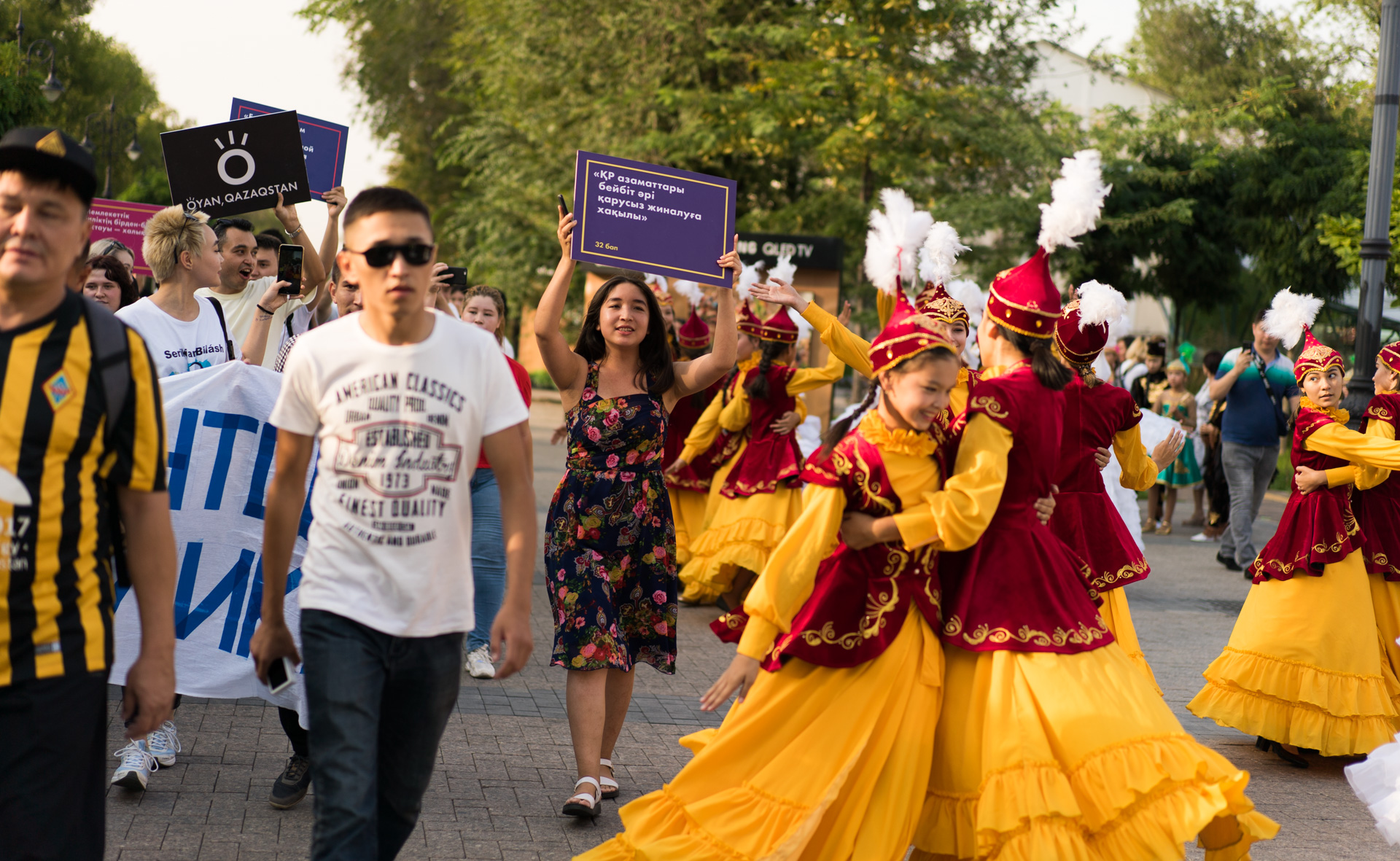
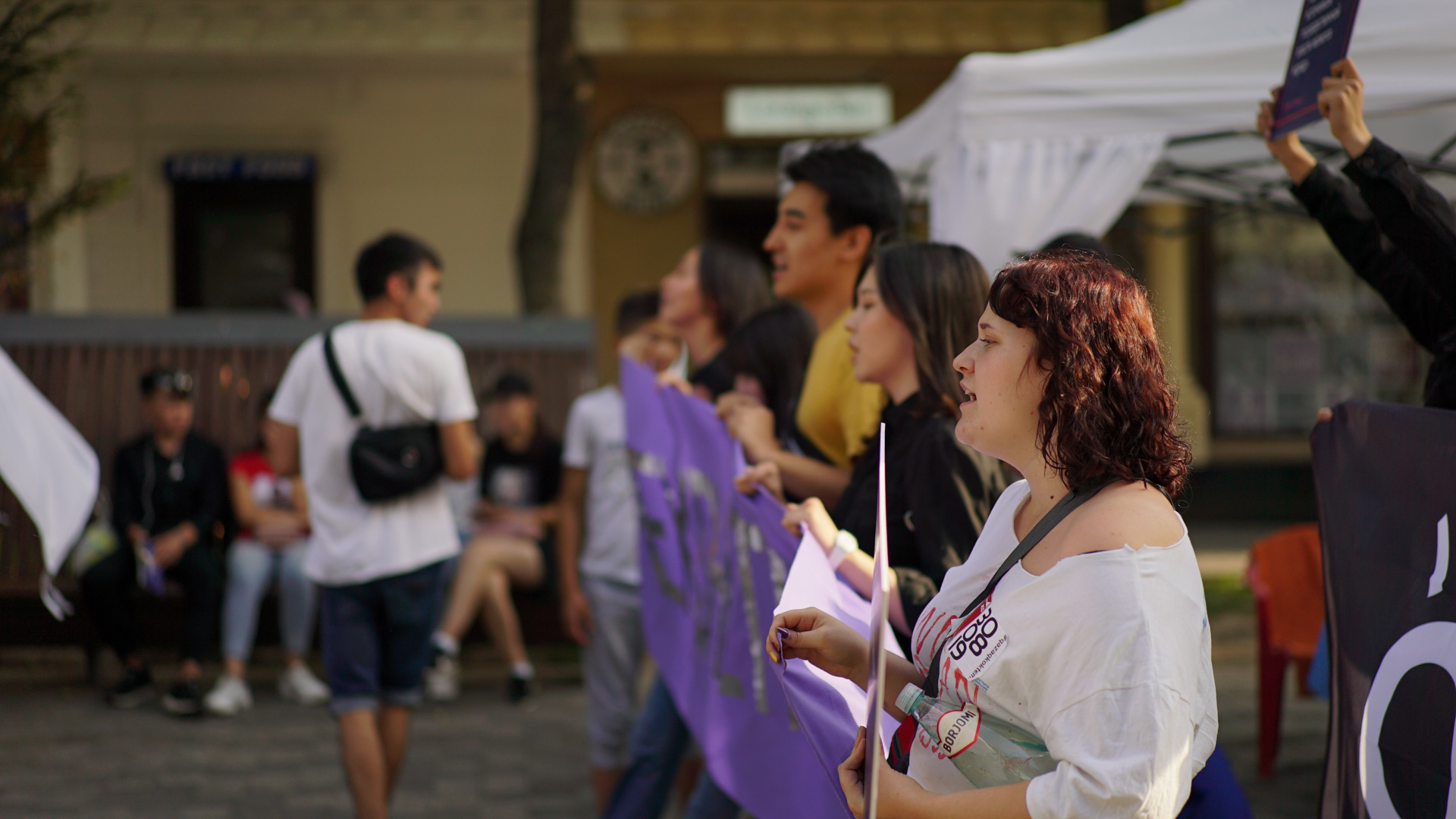
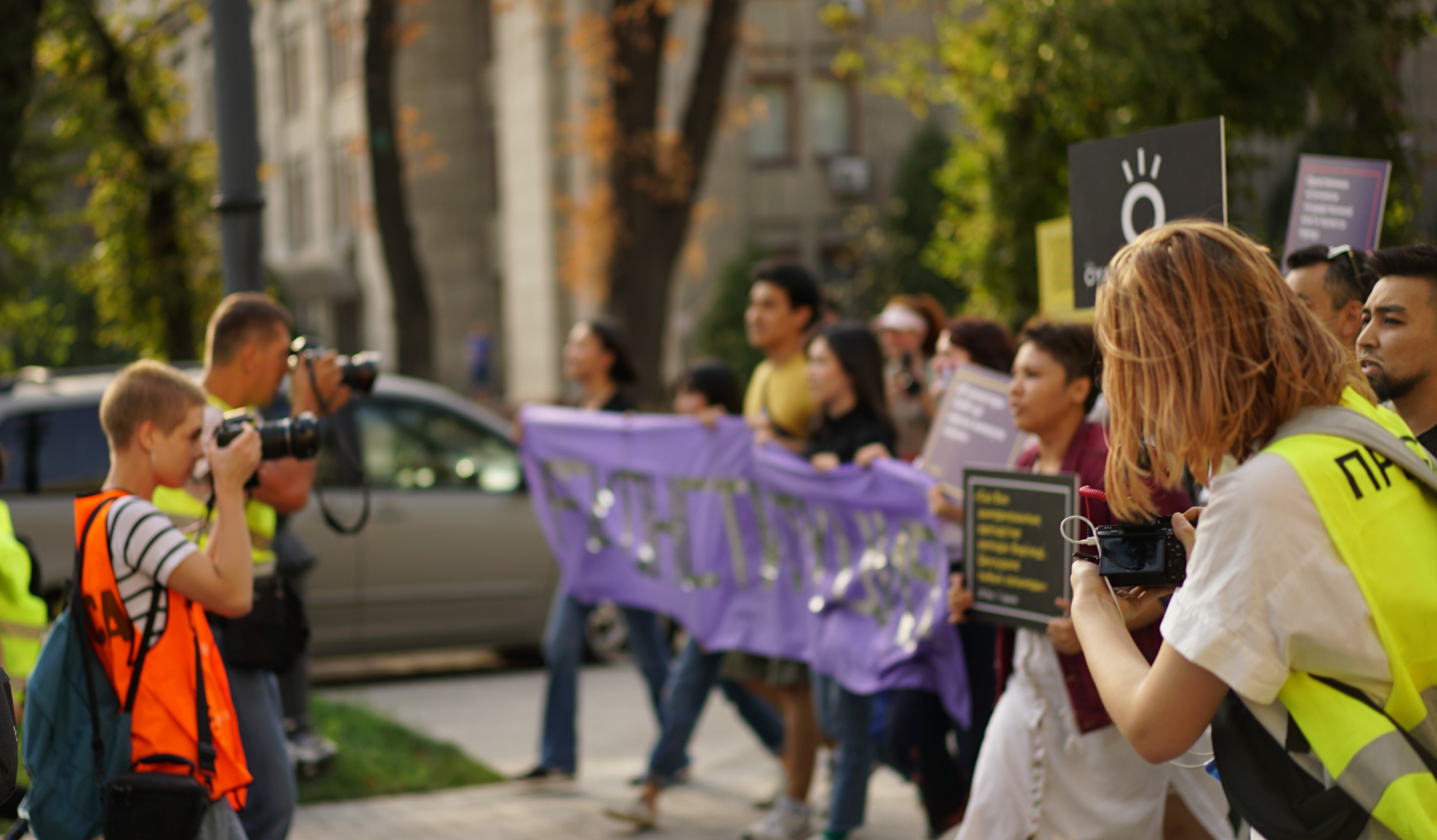
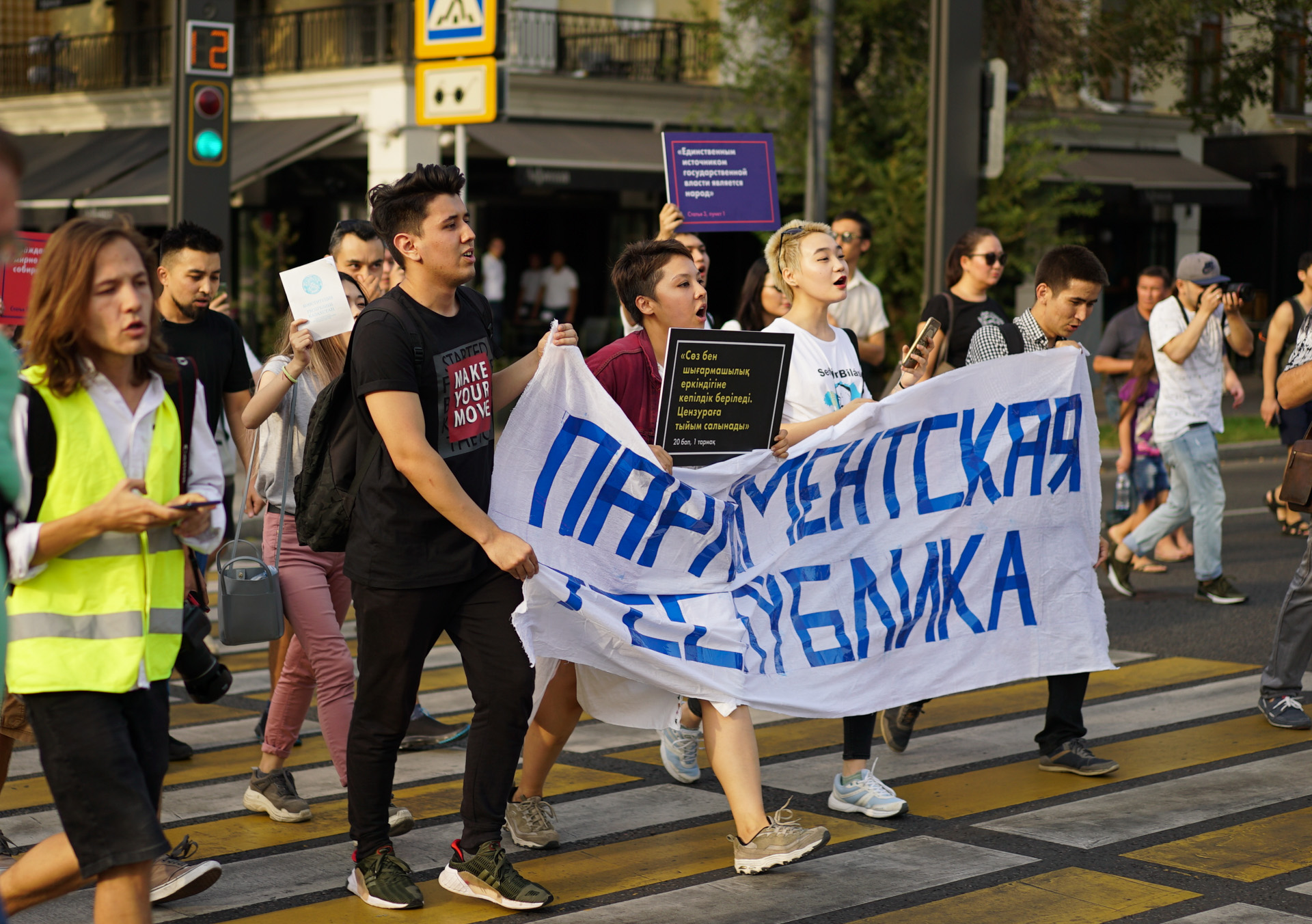
During the march, participants chanted for the reform of Kazakh Constitution, release of political prisoners, shift to a parliamentary republic, and against authoritarianism. One of the slogans chanted by the marchers was “I have a choice”, a phrase that became one of the key symbols of the 2019 protests in Kazakhstan. Some of the participants held up posters with excerpts from the Constitution.
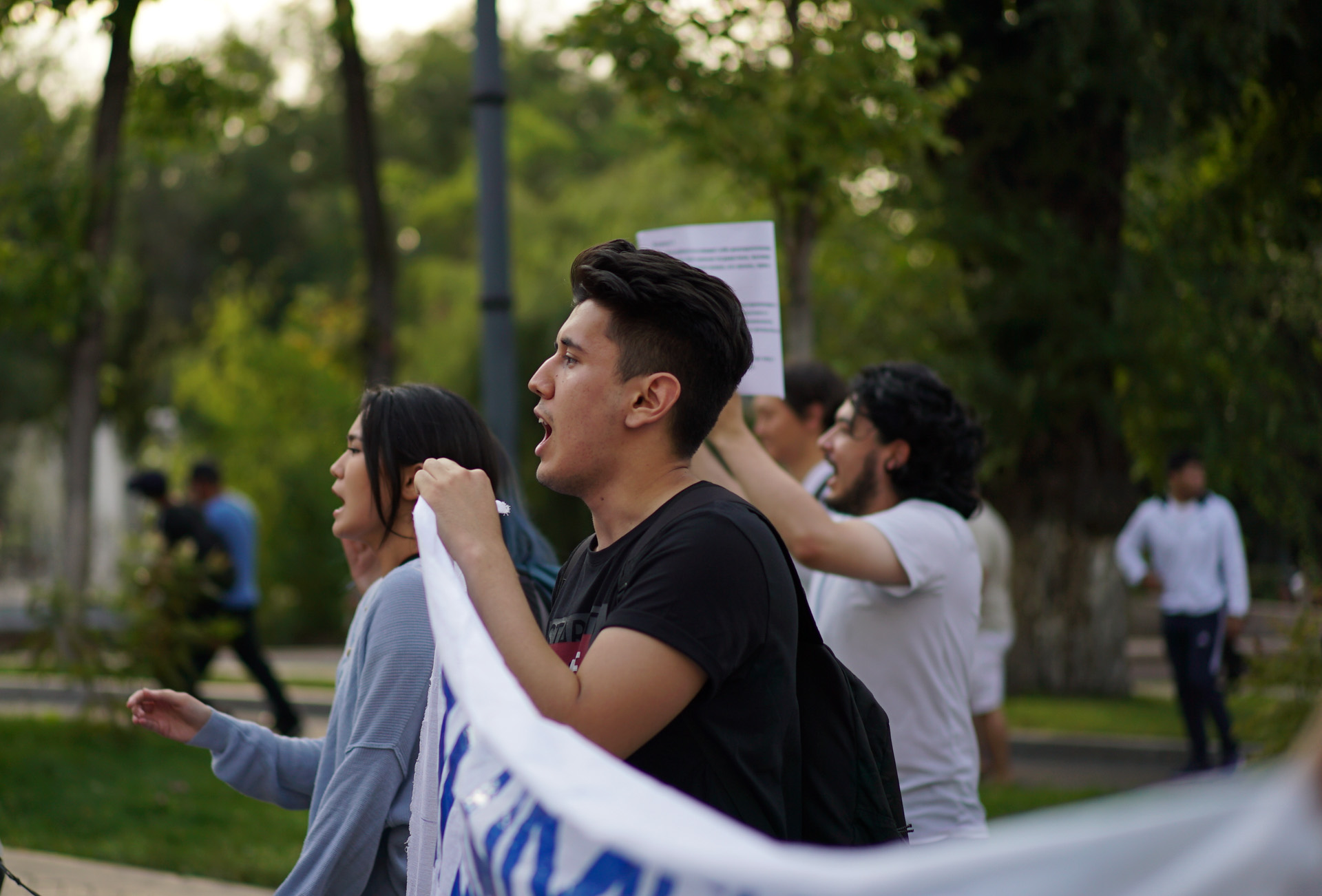
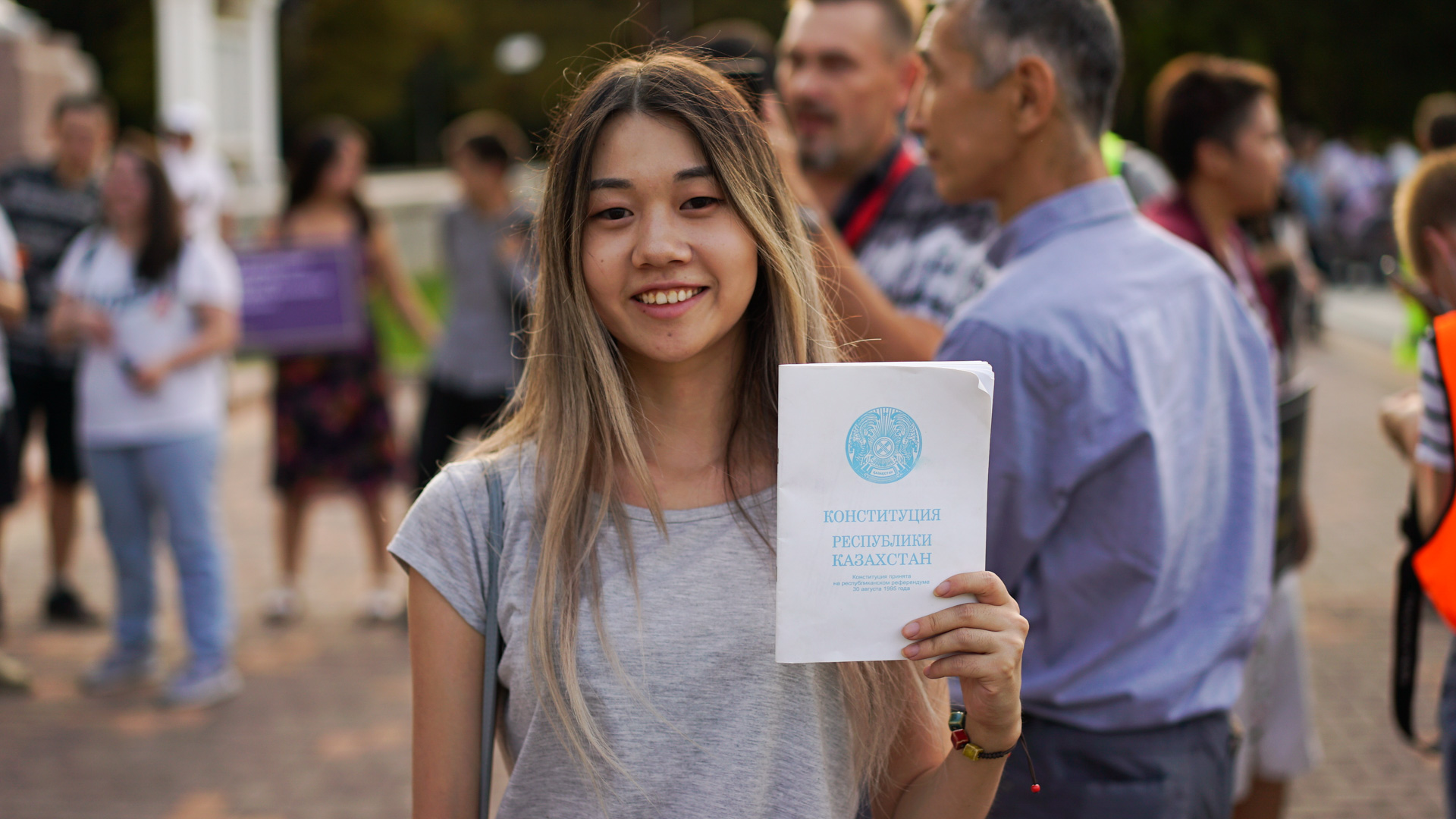
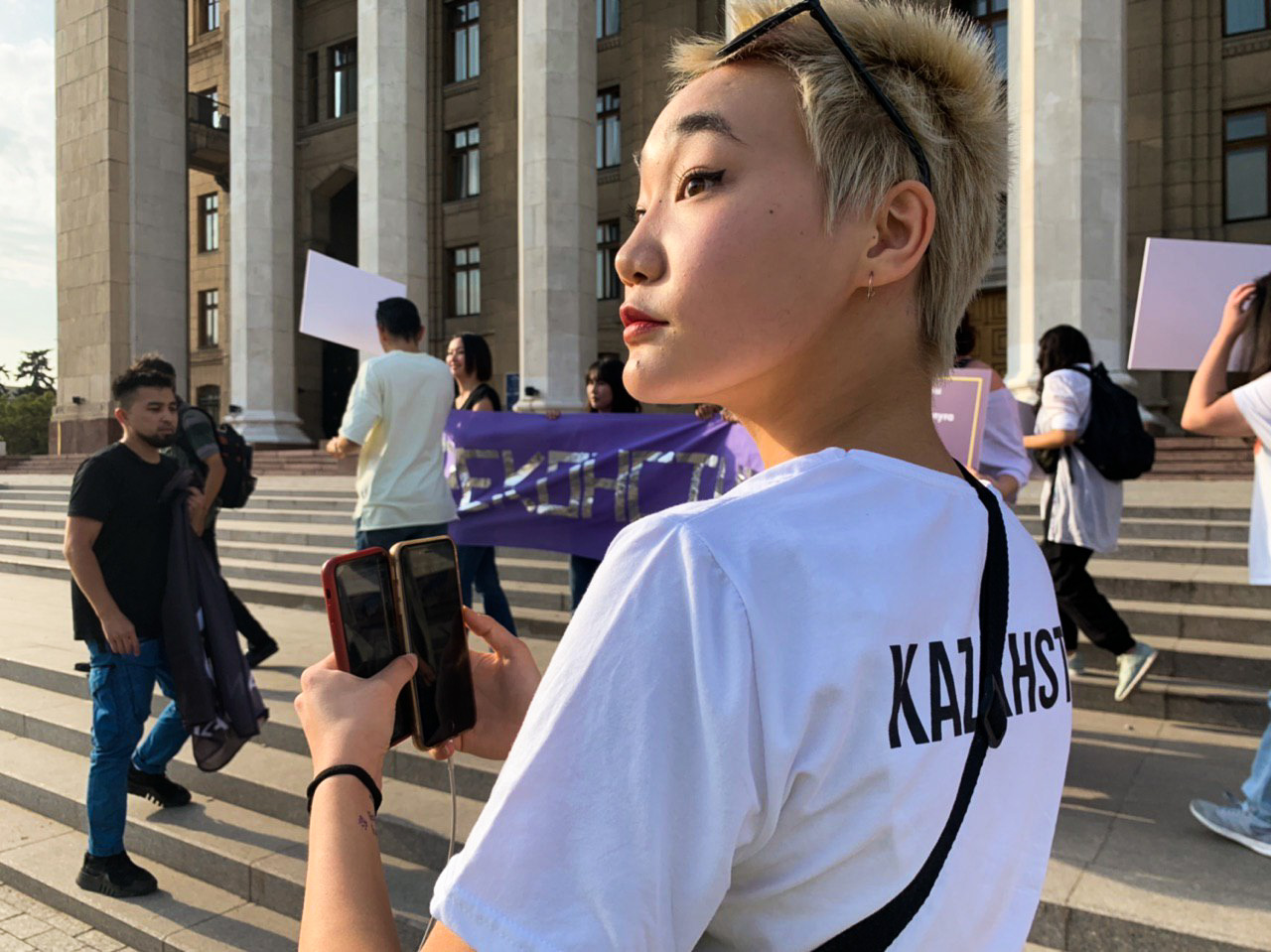
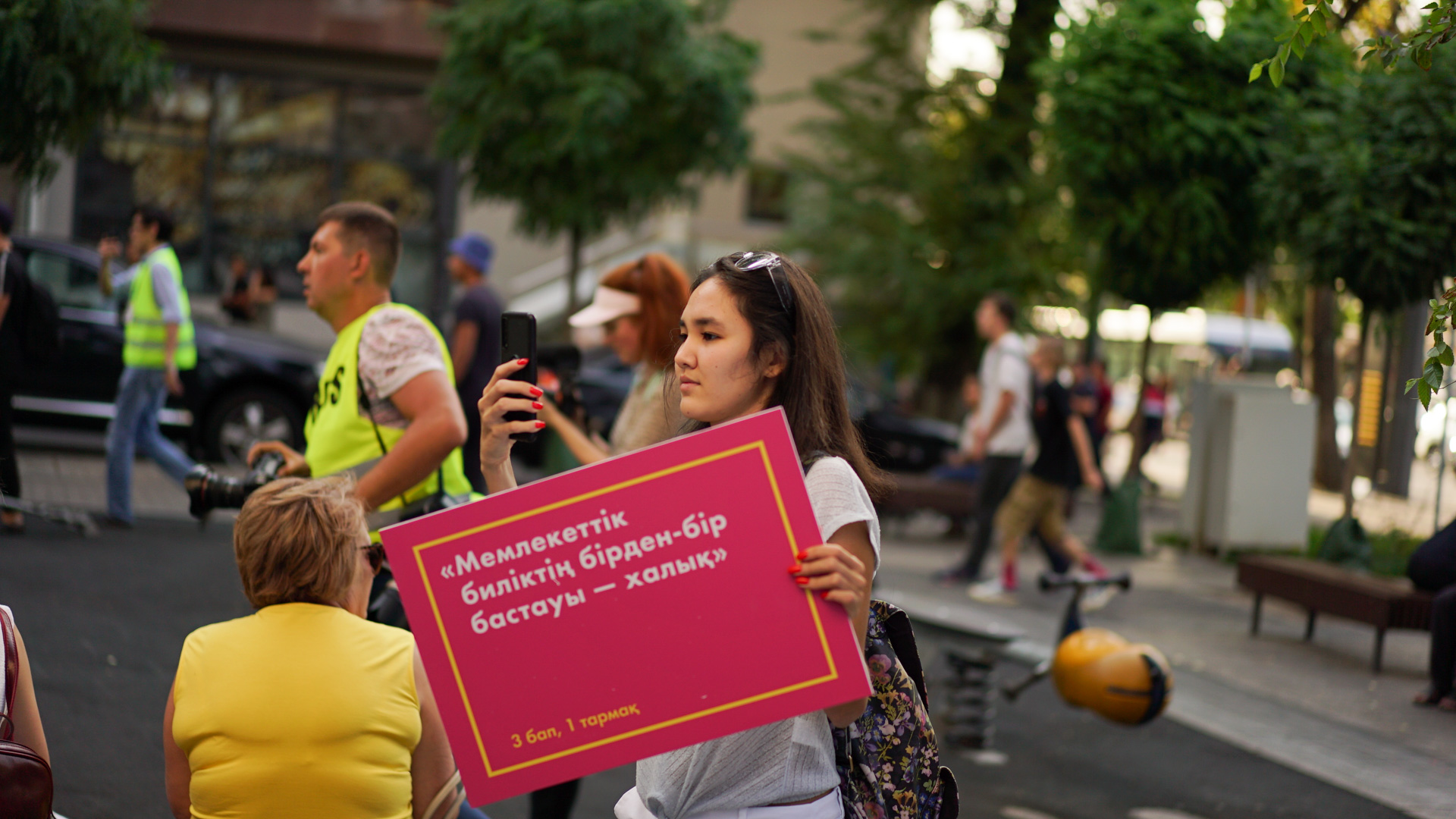
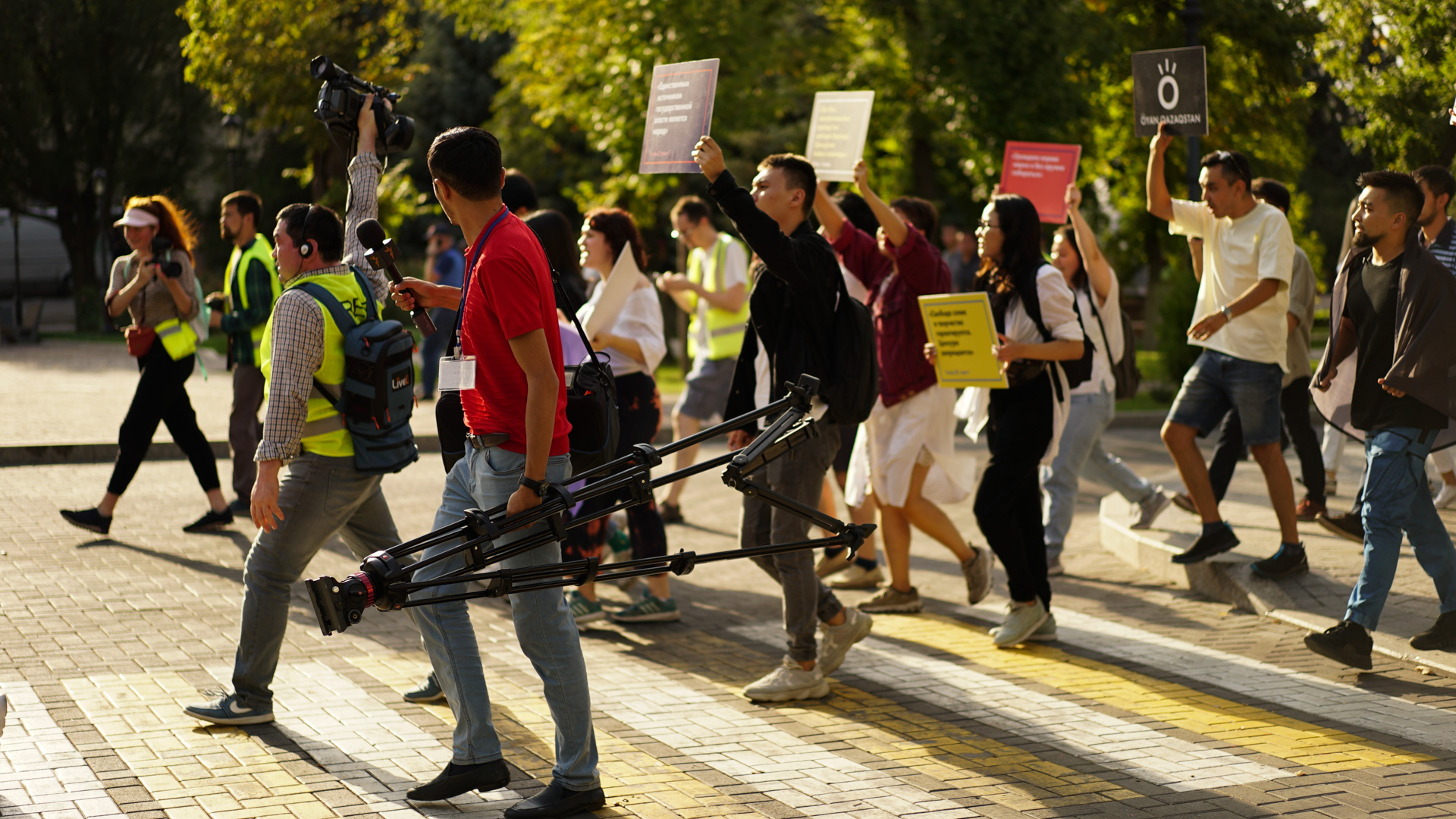
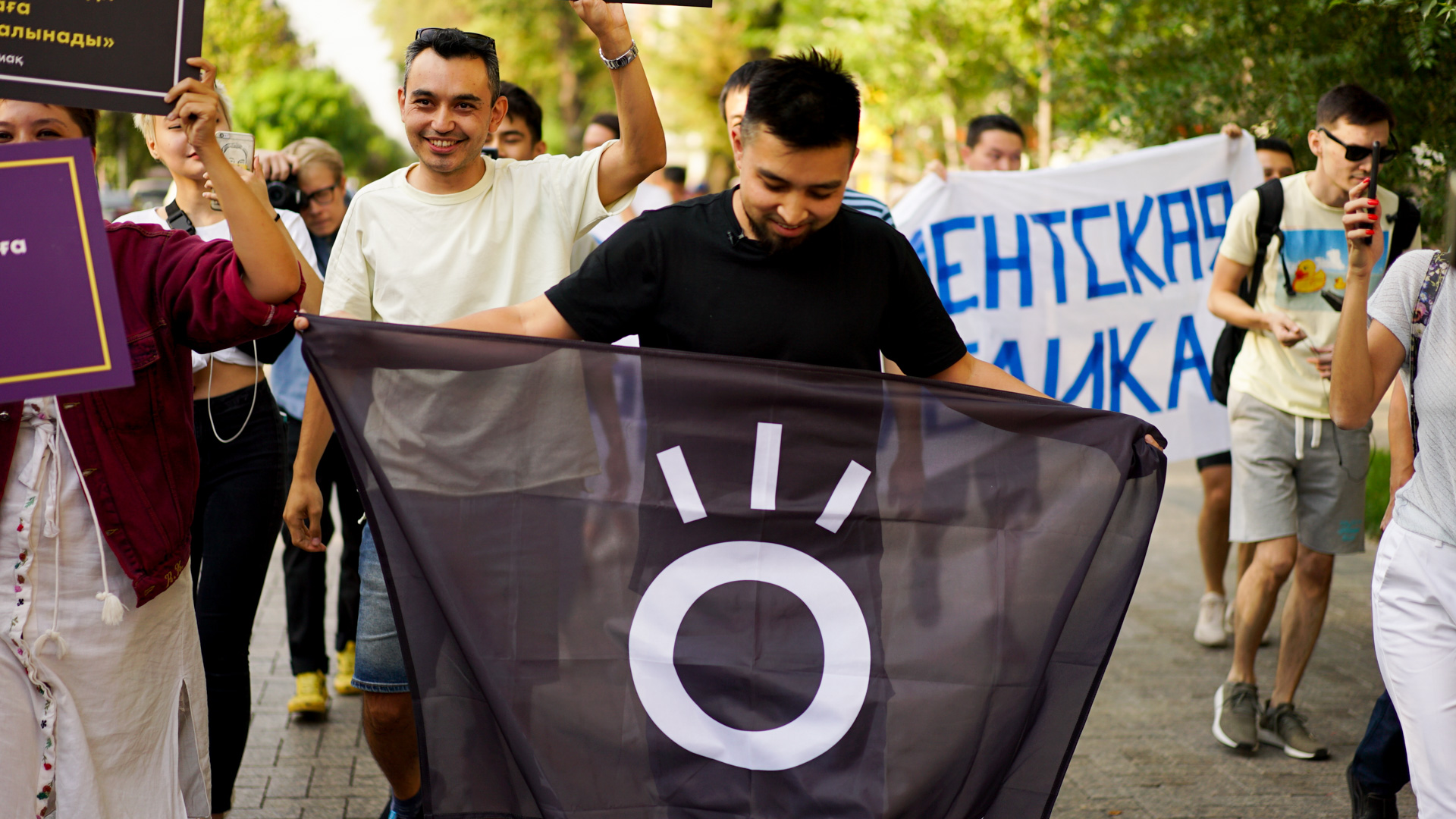
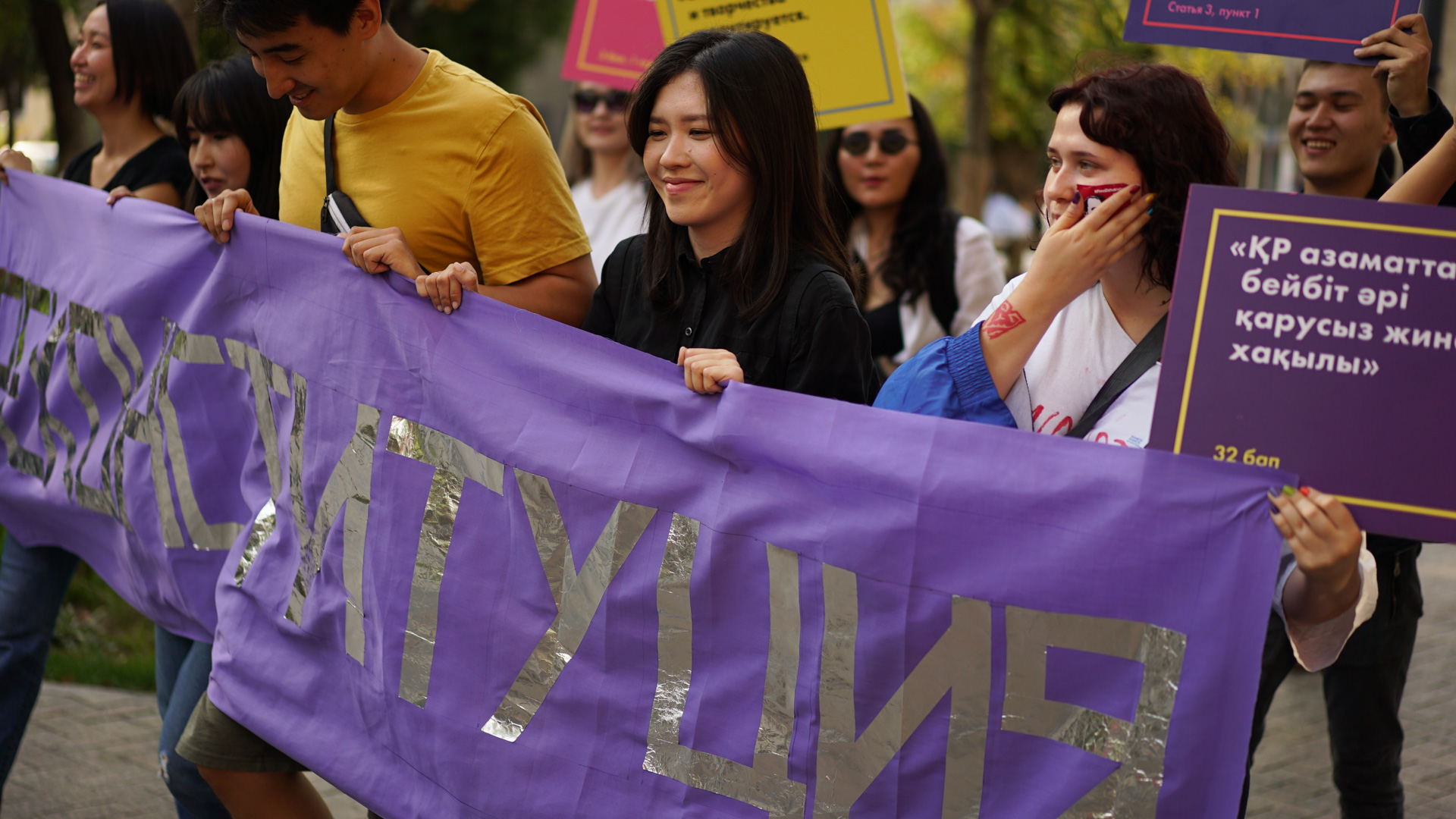
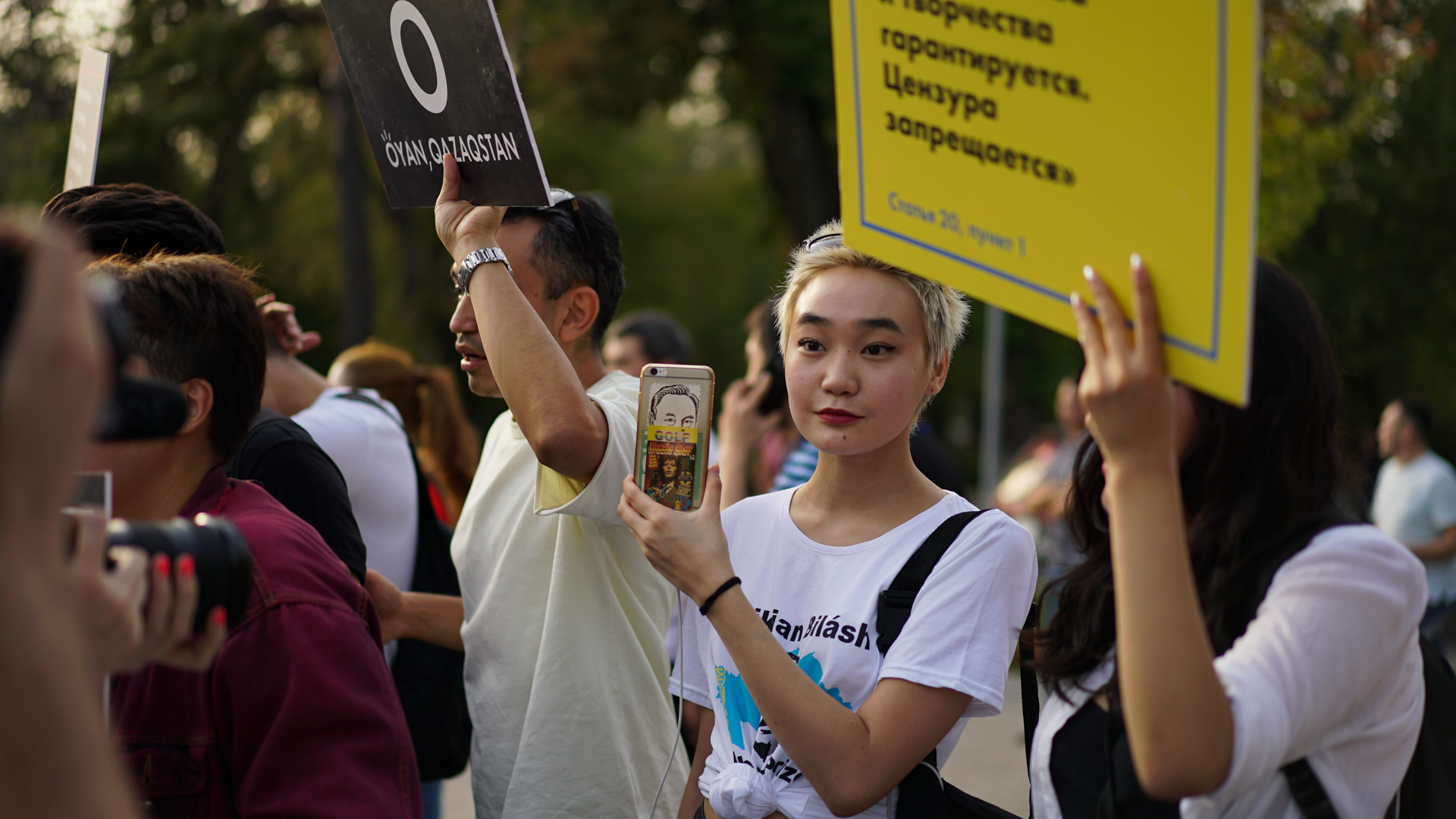
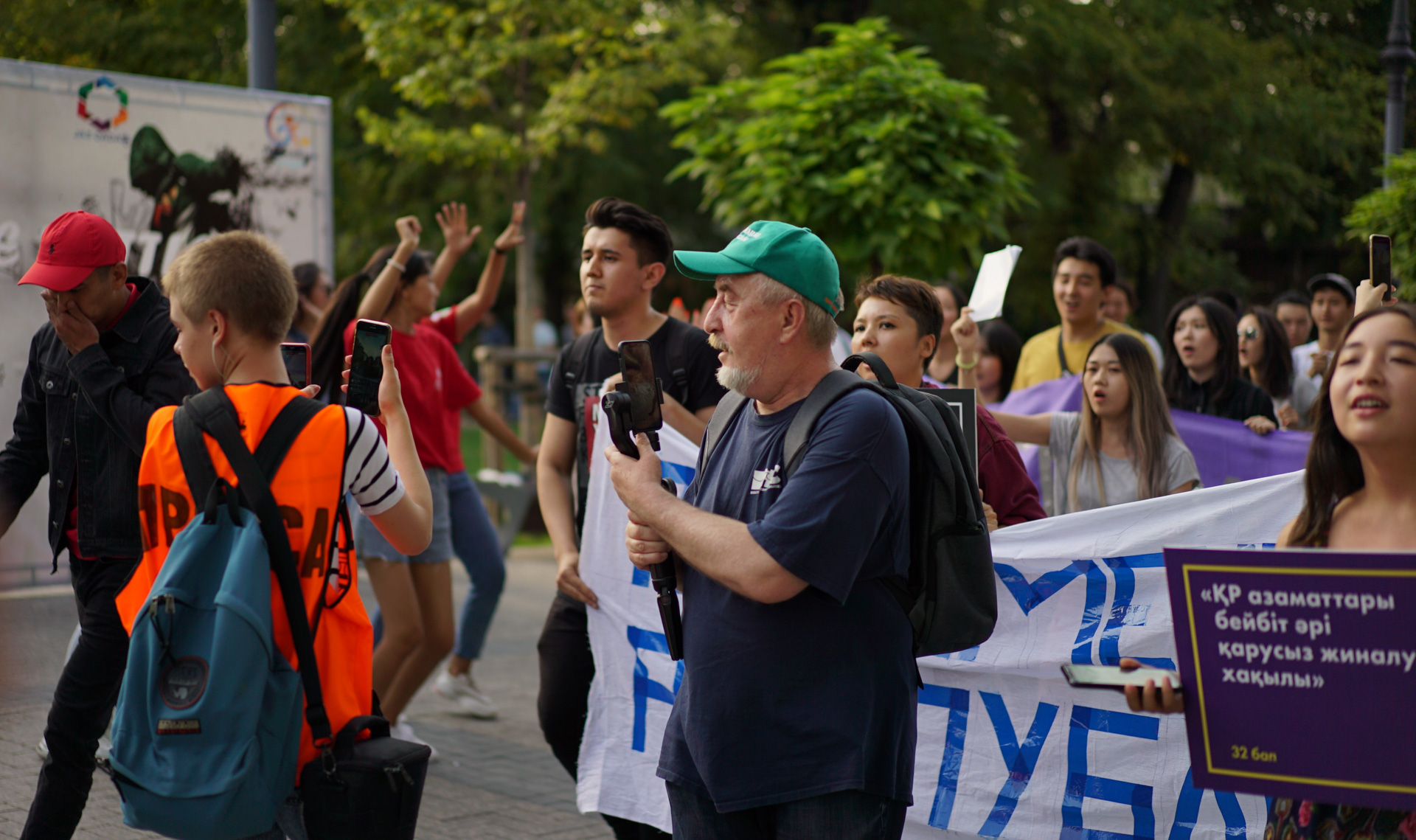
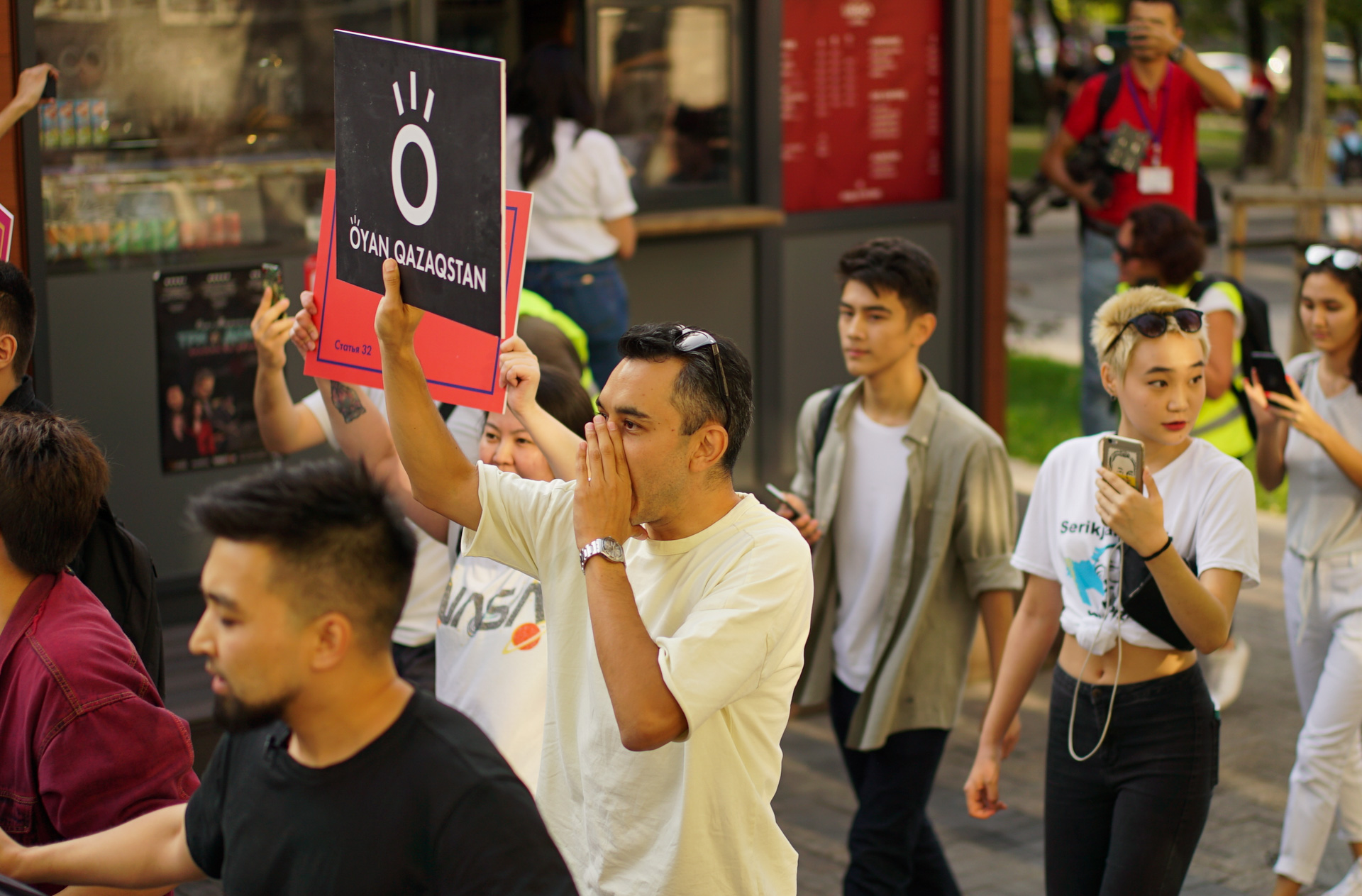
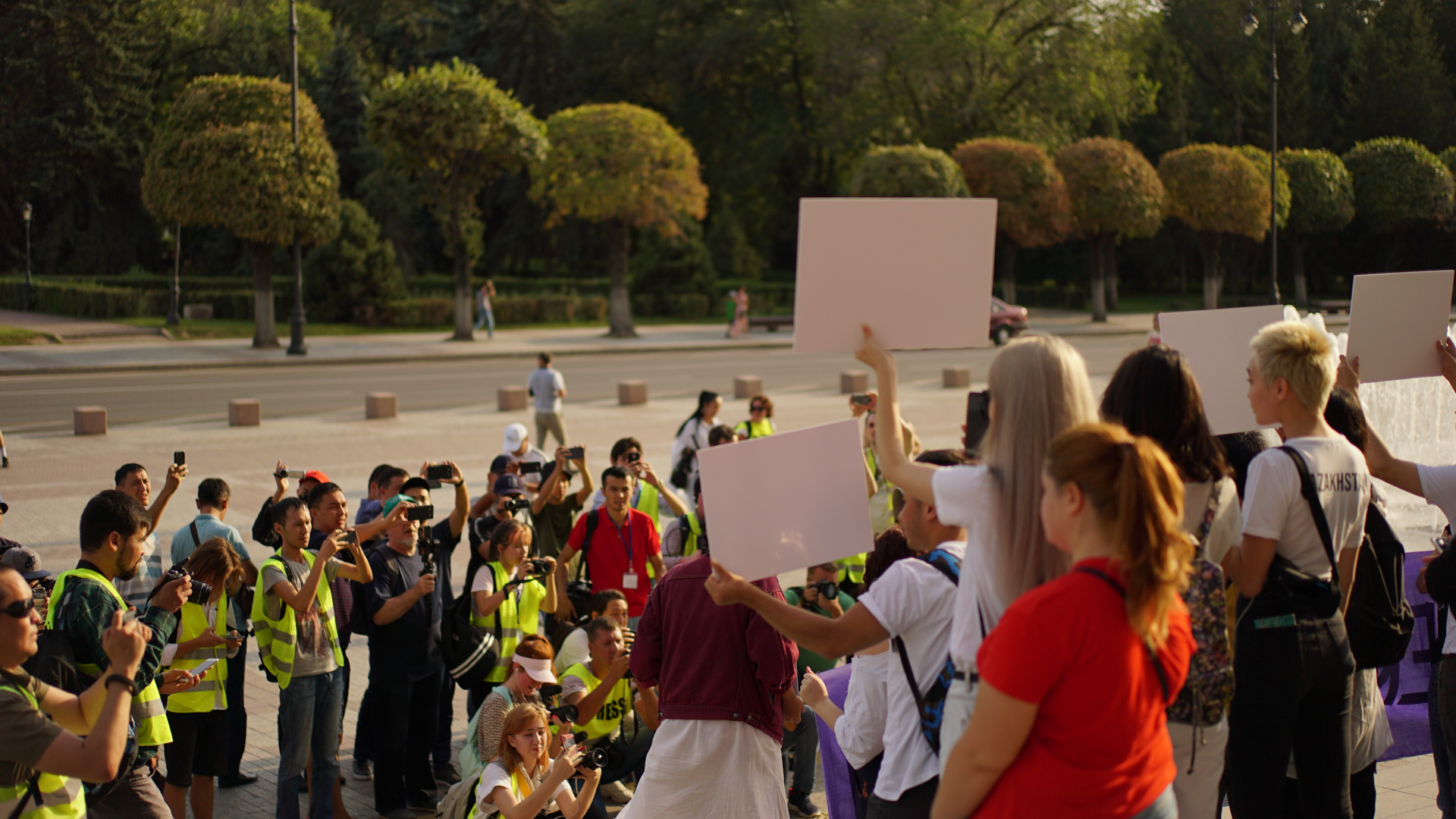
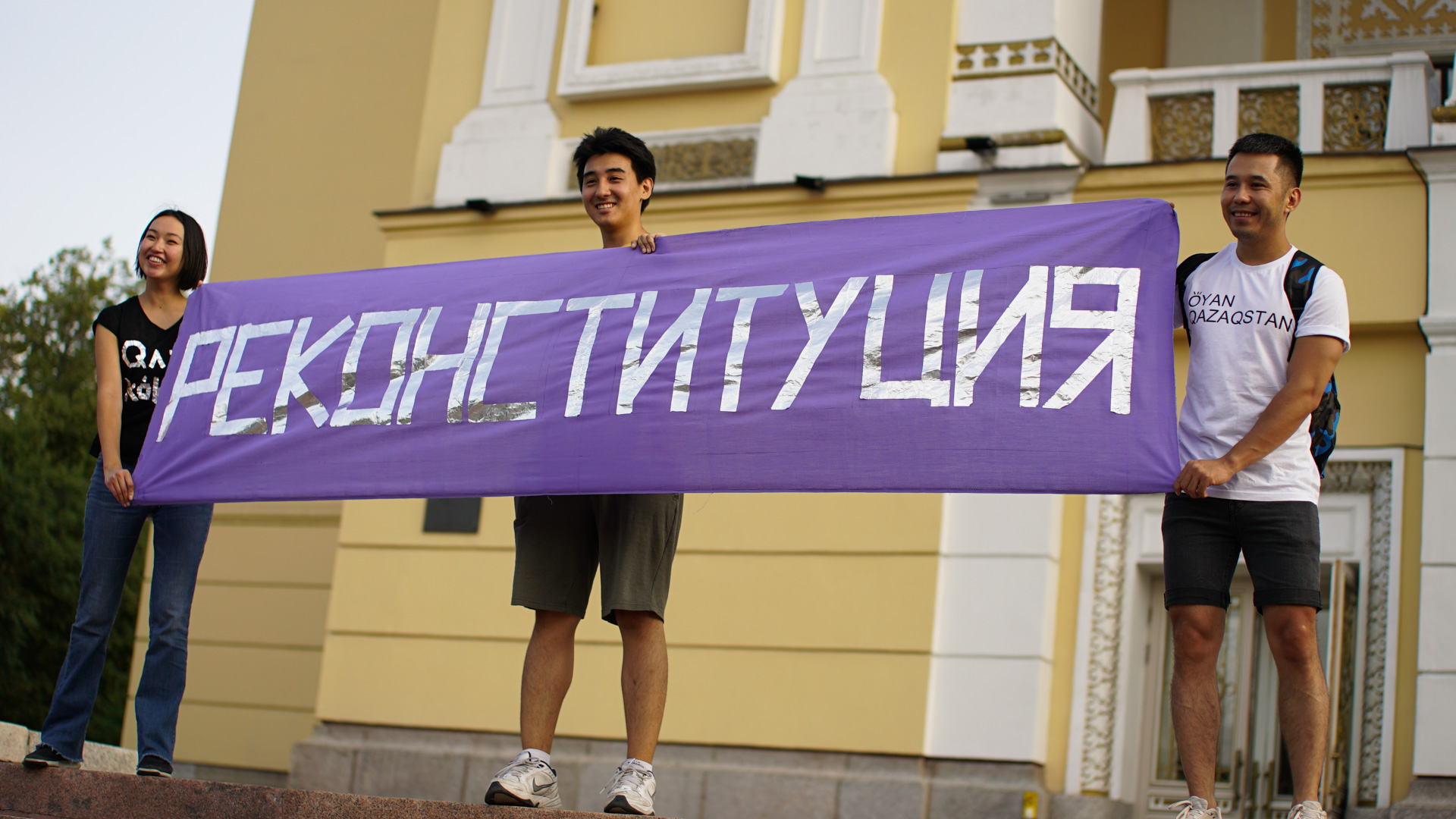
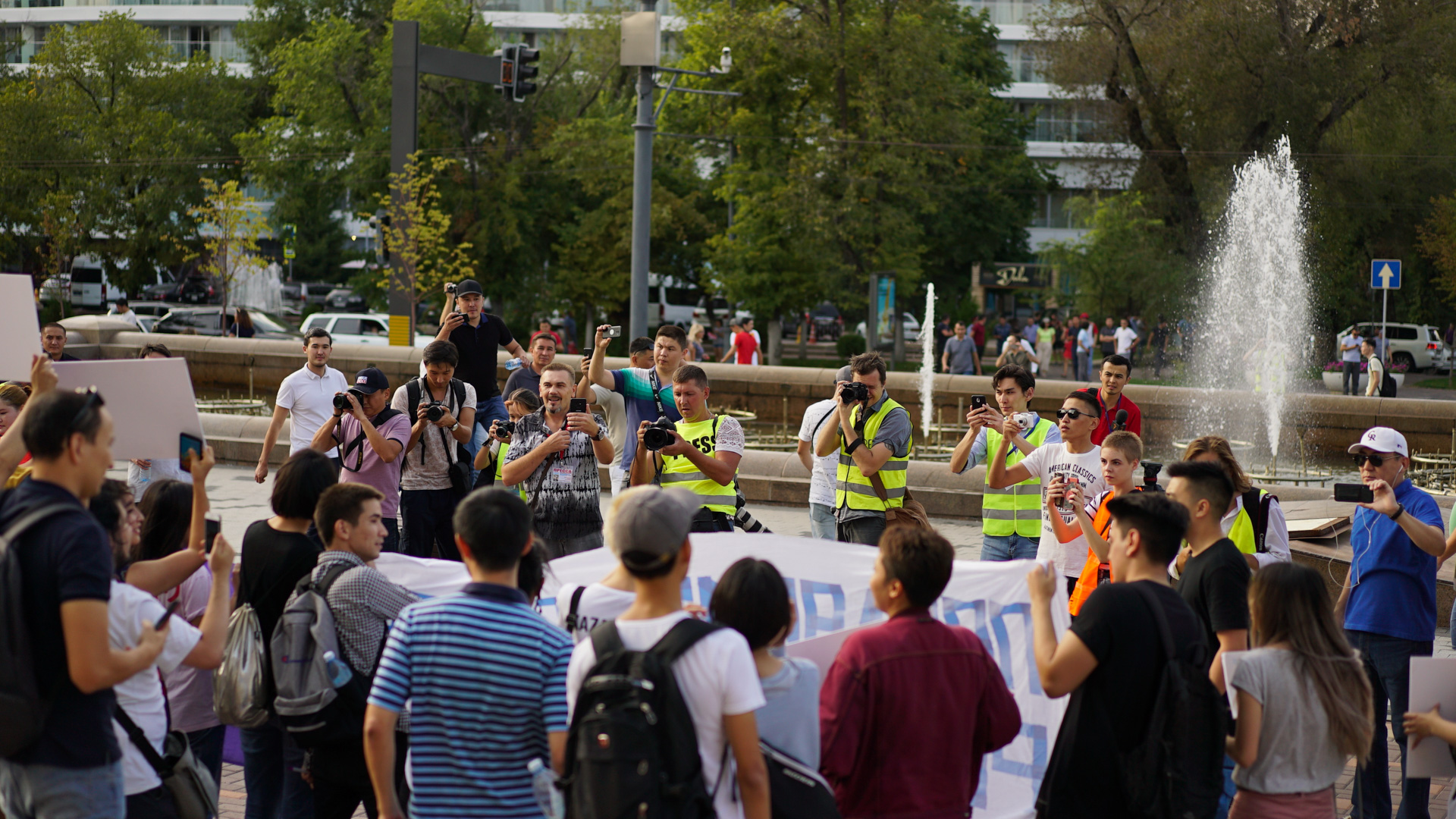
Throughout the route, marchers were followed by plain-clothed officers of force structures.
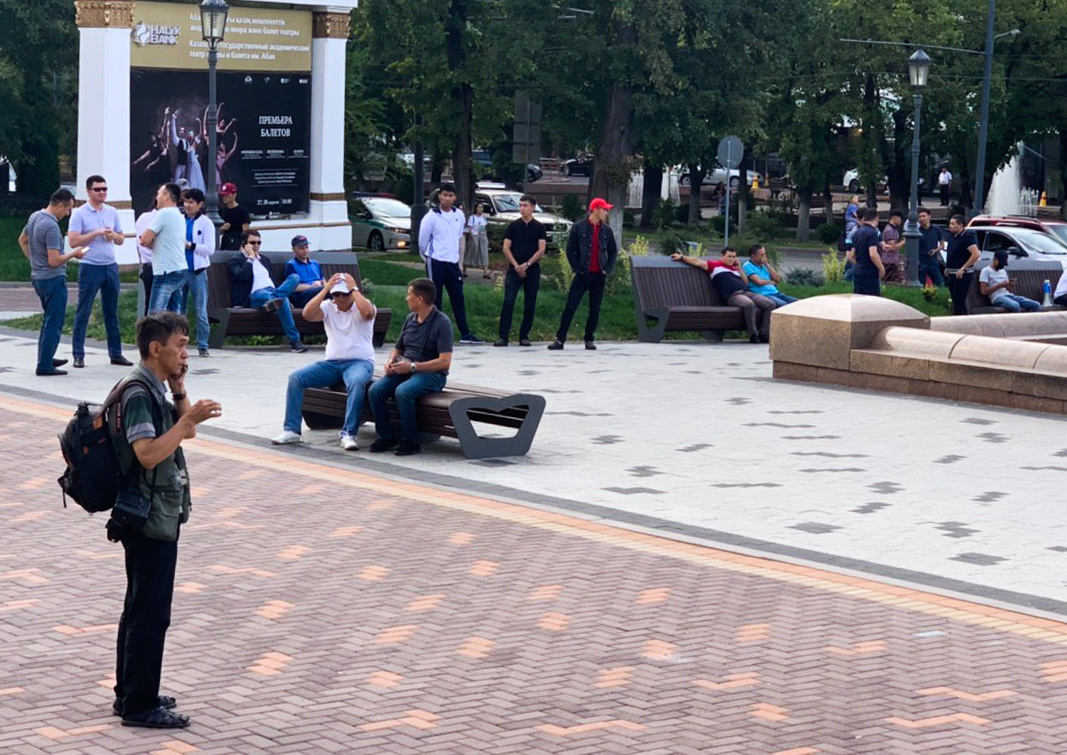
Context
After the events of March 2019 in Kazakhstan, a 17-year-old artist Medina Bazargaliyeva held an art performance; she walked down Panfilov street in Almaty and kept repeating the phrase, “I have a choice”, to her cell phone’s front camera. Her words became one of the main slogans of the democratic protests in Kazakhstan. In April, activists Asya Tulesova and Beibarys Tolymbekov added the phrase to their “You cannot run away from the truth” banner — an art demonstration for which both were detained by the police and arrested for 15 days. A number of Kazakhstani and international organizations such as Amnesty International recognized Tulesova and Tolymbekov as prisoners of conscience. Solidarity efforts in support of the activists took place in different cities of Kazakhstan and around the world: Almaty, Astana, Karaganda, Uralsk, London, Berlin, New York, Prague, Budapest, Paris, Los Angeles, Milan, etc. By the end of spring, the civic and art protests transformed into a civic movement, Oyan Qazaqstan, and the art group that began to advocate for freedom of speech and democratic reforms. The movement initiated protest campaigns and provided support to detained activists.
During spring and summer 2019, over 4000 people in Kazakhstan were detained or arrested. According to local and international organizations and the UN, the arrests and detainments violated basic democratic principles, Constitution of the Republic of Kazakhstan, and international norms on freedom of peaceful assembly. 2019 in Kazakhstan was also characterized by government's repressive actions against media and freedom of speech. The police and special departments, as well as thugs for hire were used against journalists and activists. All major social networks and messengers in Kazakhstan were subject to massive blockings.
